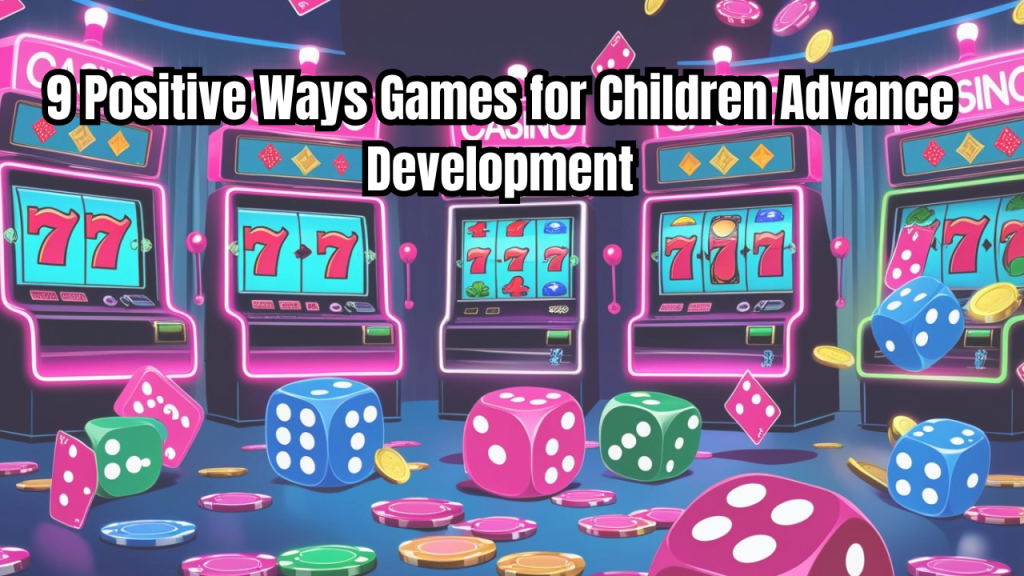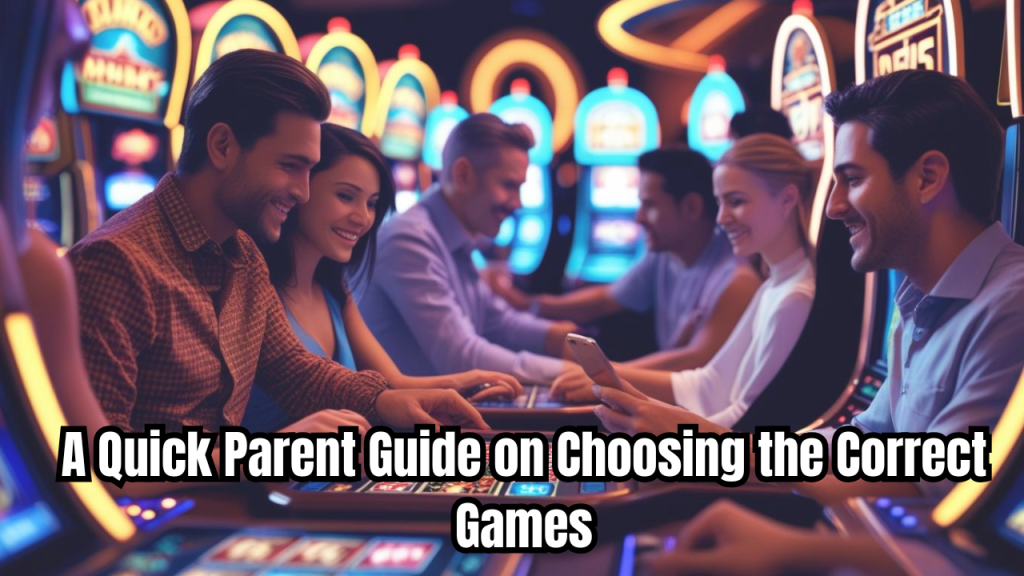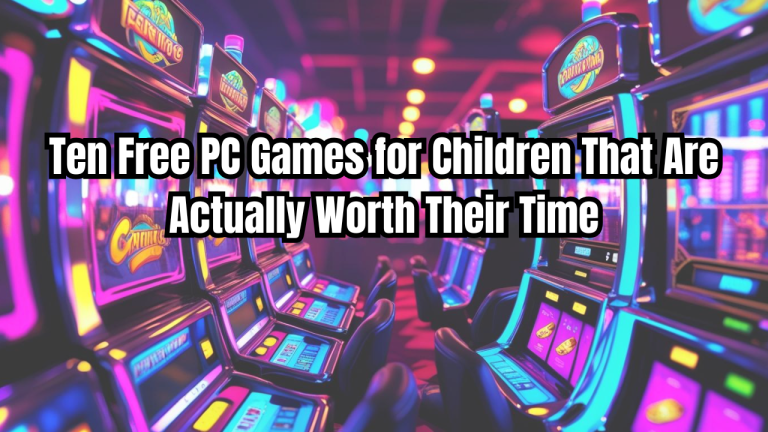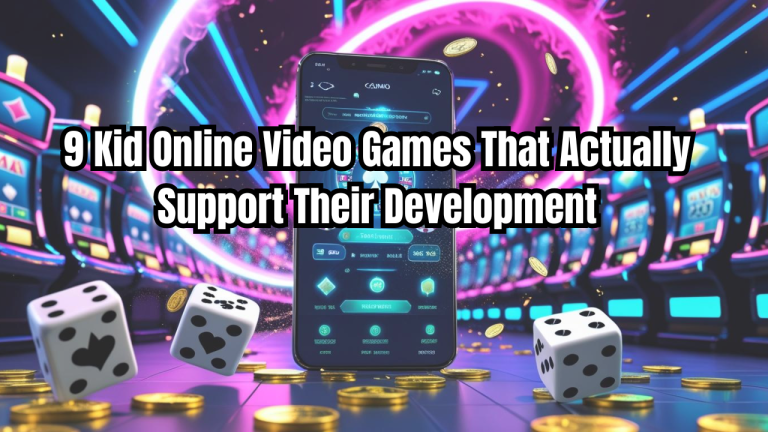Children do, after all, enjoy games. Gaming is part of youth now whether it’s teaming up with buddies in coop adventures, exploring worlds in Minecraft, or clicking away on a tablet.
Not exactly a negative thing either.

Although screen time is easy to worry about (and sure, limits are crucial), the reality is not all games are made equal. Some are merely pointless amusement. But others? Your child can really progress cognitively, socially, even emotionally thanks to them.
We’re delving into the 9 genuine, researchbacked benefits of games for kids in this post plus how to find the excellent ones, responses to most parents’ most often silently Googled questions.
Let us deliberately make playtime meaningful.
—–
1. Games Allow One to Train Their Brain
Consider the appropriate game as your child’s mental equivalent of a workout. Puzzle games, strategic games, even some platformers need on focus, logic, and imaginative problemsolving.
Beyond just entertainment, games like Thinkrolls, Lightbot, or Monument Valley have greater power. Without thinking of school, they improve memory, decisionmaking, and planning ability.
#2. They Instruct Resilience and Patience
Every game presents difficulty. Perhaps your child has to figure out how to create something or surpass a challenging level or figure. They fail then try once more. Then one more.
Regarding that “try, fail, improve” cycle? It imparts resilience—the capacity to recover, keep on, and resist easy giveup. Early development of this life skill is quite valuable.
————
3: Enhancement of DecisionMaking
In many games, particularly those with missions or simulations, your youngster must foresight: What ought I to do next? Should I make a mistake, what follows?
Made in quick but controlled surroundings, these choices develop strategic thinking and foresight. It’s a fantastic approach to support careful decisions and introspection.
—–
4. Reading and Language Development
Games including interacting characters, instructions, or storytelling can subtly incorporate reading practice.
Children are reading, digesting, and extending their vocabulary without even noticing from early learning apps like Endless Alphabet to adventure games with speech.
___
5. They release creative expression.
Give a youngster access to a creative software like Toca Life World or a sandbox game like Minecraft and you will watch imagination come to life.
From beginning, they are creating homes, cities, characters — stories and universes. These games enable children express themselves, experiment, and think like creators rather than merely consumers.
—–
6. Gaming Can Be Social (In a Positive Way)
Indeed, excessive internet gaming is not ideal. Still, many contemporary games support teamwork, cooperation, and shared goals.
Kids have opportunity to interact, listen, and solve problems together in coops like Overcooked or social games like Animal Crossing. They also are developing communication abilities and empathy during the process.
————
7. Motor Skills Also Improve
All that precisely tapping, swiping, and commanding characters with swagger? It’s not just entertaining; it’s also improving handeye coordination and fine motor skills.
Younger children might develop coordination in subtle, interesting ways from fastpaced games—especially those including physical difficulties or reaction timing.
—
8. Games Instruct in Goal Setting and Focus
Good games for kids birthday party follow a framework whereby you establish a goal, advance, and earn a prize. Children pick up stay focused, stick to projects, and appreciate little wins.
This naturally fosters confidence and drive – behaviors that will help one in other spheres of life including in the classroom.
___
9. They Empower Children to Feel Competable
One of the best things about games for kids online ? They give immediate comments and honor effort. Level your beat? Create something extraordinary. Children start to feel good about themselves.
That confidence, that “I did it,” sensation is really strong. It also motivates people to meet fresh challenges—on and offscreen.
A Quick Parent Guide on Choosing the Correct Games

To be straight forward, not every game available on the app store is worth your child’s time. How therefore should one choose the appropriate ones? This is a basic strategy:
Look for ESRB “E for Everyone,” or ageappropriate labels, then check the rating.
2. Research the game for parentoriented evaluations using reliable sites such as Common Sense Media.
3. Steer clear of games loaded with advertisements or inapp purchases; they divert attention and could cause unneeded expenditure.
Think learning, creativity, problemsolving — not only showy entertainment — when selecting games for kids to play with actual worth.
Try it yourself; spend five minutes either playing it or observing your youngster. You will pick knowledge from several sources.

Frequencies of Questions: games for kids
Q1:What Most Parents Want to Know
For children aged 2 to 5, the American Academy of Pediatrics advises up to 1 hour daily of quality screen time. The secret for older kids is balance; make sure screen time doesn’t replace sleep, exercise, or social time.
Q2:Are children harmed by violent games?
Yes. Studies indicate that playing violent games can cause desensitization and aggressive conduct. Stay with ageappropriate, nonviolent, positive message games.
Q3:can childern learn from games?
Indeed, when chosen well, games may help my child learn. Many games help with early reading, arithmetic, reasoning, even programming. The secret is mixing them with actual play and discussion.
Q4:what kind of games childers can play ?
Starting with interactive, educational games involving colors, letters, or movement, around age 3 is a reasonable age to begin gaming. Keep things straightforward and brief.
Q5:How can I find out whether my child plays healthy games?
Ask yourself: Is it waking you from sleep? Setting off mood swings or stress? Changing one’s interests to replace another If not, and if it is under control and watched over, it can fit a wellbalanced
schedule.
Final Thoughts
Modern childhood consists on games, and this is not a negative aspect. Actually, games for kids can be tools for development rather than sources of entertainment when utilized deliberately and sensibly.

The secret is straightforward: pick smart, play together occasionally and keep active. Since gaming requires more than just mindlessness. If done correctly, it can be significant.






